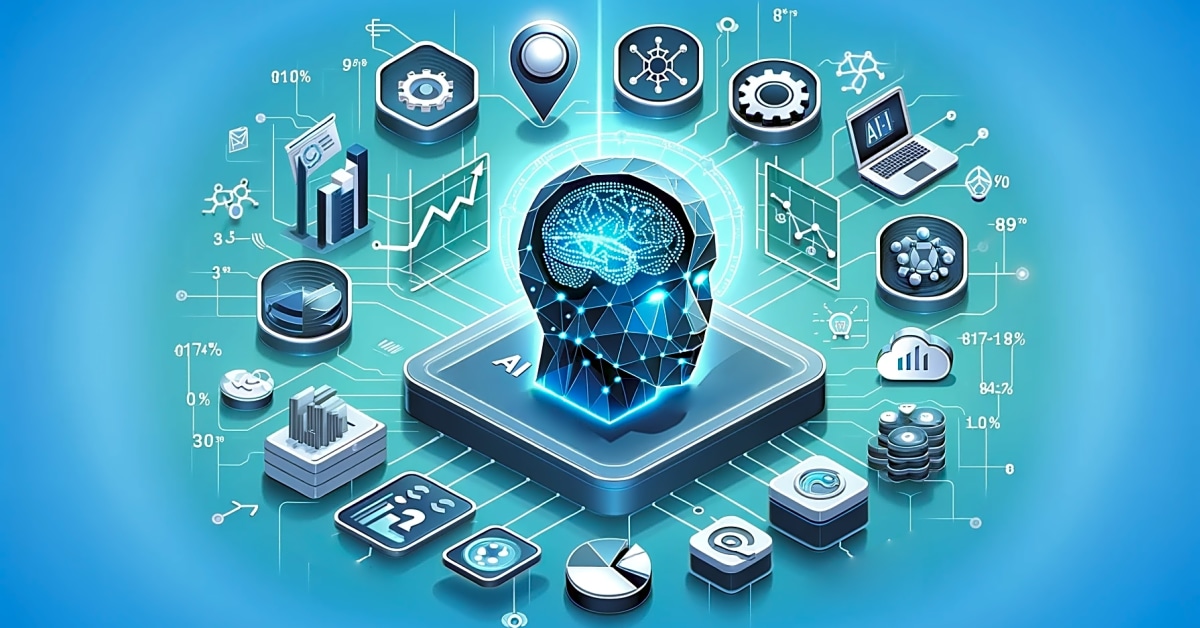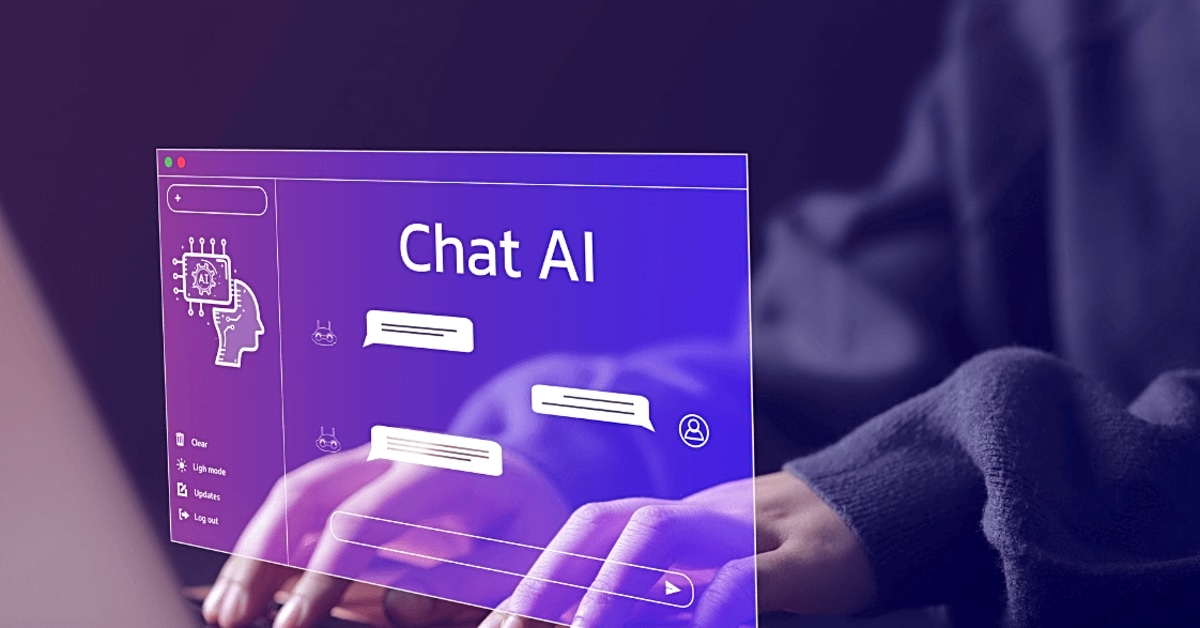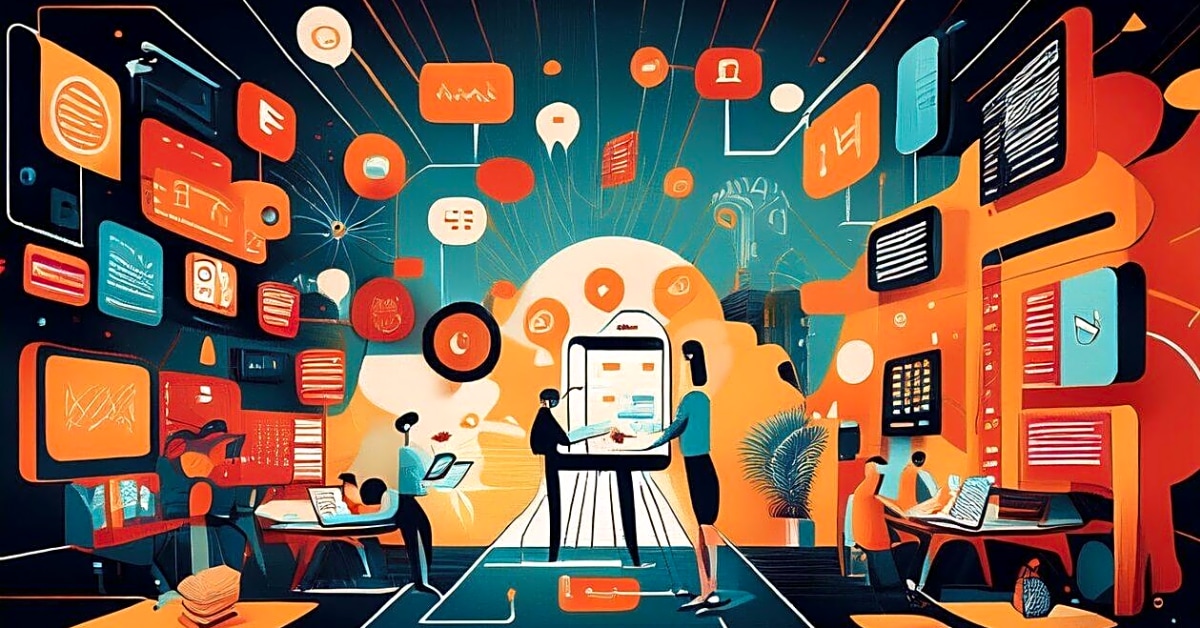Welcome to the world of personalized marketing, where AI and chatbots are changing the game. In today’s digital landscape, consumers are bombarded with generic advertisements and marketing messages that often go unnoticed. But what if you could tailor your marketing efforts to each individual customer, delivering personalized product recommendations that truly resonate with them? That’s where the power of AI and chatbots come in. By leveraging these cutting-edge technologies, businesses can create unique and highly targeted marketing experiences that drive engagement and conversions. In this article, we will explore how AI and chatbots are revolutionizing personalized marketing and how you can harness their potential for your own business. So, get ready to dive into the world of personalized product recommendations and discover the endless possibilities for your marketing strategy.The world of marketing is constantly evolving, with new technologies and strategies emerging every day. In today’s fast-paced and competitive market, businesses are always looking for ways to stand out and connect with their customers on a deeper level. One such strategy that has gained immense popularity in recent years is personalized marketing. By tailoring products and services to the specific needs and preferences of individual customers, businesses can create a more personalized and engaging experience for their audience. And with the help of AI and chatbots, this process has become even more seamless and efficient.In this article, we will explore the power of AI and chatbots in personalized marketing and how they can revolutionize the way businesses connect with their target audience. Specifically, we will focus on the use case of personalized product recommendations, as this is one of the most effective ways to utilize these technologies for marketing purposes. But first, let’s delve into the concept of personalized marketing and why it has become a crucial aspect of modern marketing strategies.Personalized marketing refers to the practice of tailoring products, services, and messages to meet the specific needs and preferences of individual customers. This approach is a far cry from traditional mass marketing, where businesses would target a broad audience with a generic message or product. With personalized marketing, businesses can create a more intimate and meaningful connection with their customers, leading to increased customer loyalty, engagement, and ultimately, sales.Now, imagine taking this already powerful strategy and combining it with the capabilities of AI and chatbots. The potential for creating a truly unique and personalized experience for each customer becomes limitless. AI-powered algorithms can analyze customer data and behavior to make accurate predictions about their preferences and needs. Chatbots can then use this information to provide personalized product recommendations in real-time, creating a seamless shopping experience for the customer.In this article, we will dive deeper into how businesses can harness the power of AI and chatbots to create personalized product recommendations. We will discuss the benefits, challenges, and best practices for implementing this strategy, as well as real-life examples of companies that have successfully used AI and chatbots for personalized marketing. So, whether you are a business owner looking to enhance your marketing efforts or a curious reader interested in the latest trends in marketing technology, keep reading to discover how AI and chatbots are transforming the world of personalized marketing.
To start, it’s important to understand the basics of AI and chatbots. AI refers to machines or computer systems that are able to perform tasks that typically require human intelligence. Chatbots, on the other hand, are AI-powered virtual assistants that can communicate with users through text or voice. Together, these technologies offer businesses the opportunity to create more personalized marketing experiences for their customers.
When it comes to customer segmentation, AI and chatbots can play a crucial role in identifying specific groups of customers based on demographics, interests, behaviors, and more. This allows businesses to target their marketing efforts towards each segment with more tailored messaging and promotions. Additionally, predictive analytics can help companies anticipate customer needs and behaviors, allowing them to stay one step ahead in their marketing strategies.
One of the most exciting uses of chatbots in personalized marketing is their ability to engage with customers in a conversational manner. By using natural language processing (NLP), chatbots can understand and respond to customer inquiries, making the shopping experience more interactive and engaging. This not only enhances the customer experience but also provides businesses with valuable insights into their customers’ preferences and behaviors.
To see the power of AI and chatbots in action, we can look at successful case studies from companies that have already implemented these technologies in their marketing strategies. For example, Sephora’s chatbot on Facebook Messenger uses AI to recommend personalized beauty products to customers based on their skin type, preferences, and purchase history. This has not only increased customer engagement but also improved sales and customer satisfaction.
Overall, the use of AI and chatbots in personalized marketing is a game-changer for businesses looking to improve their digital marketing efforts. By utilizing these technologies, companies can better target their audience, anticipate customer needs, and create a more interactive shopping experience.
To start, it’s important to understand the basics of AI and chatbots. AI refers to machines or computer systems that are able to perform tasks that typically require human intelligence. Chatbots, on the other hand, are AI-powered virtual assistants that can communicate with users through text or voice. Together, these technologies offer businesses the opportunity to create more personalized marketing experiences for their customers. For example, by using machine learning algorithms, chatbots can analyze customer data and preferences to deliver customized recommendations and offers.
When it comes to customer segmentation, AI and chatbots can play a crucial role in identifying specific groups of customers based on demographics, interests, behaviors, and more. This allows businesses to target their marketing efforts towards each segment with more tailored messaging and promotions. Additionally, predictive analytics can help companies anticipate customer needs and behaviors, allowing them to stay one step ahead in their marketing strategies.
One of the most exciting uses of chatbots in personalized marketing is their ability to engage with customers in a conversational manner. By using natural language processing (NLP), chatbots can understand and respond to customer inquiries, making the shopping experience more interactive and engaging. This not only enhances the customer experience but also provides businesses with valuable insights into their customers’ preferences and behaviors.
To see the power of AI and chatbots in action, we can look at successful case studies from companies that have already implemented these technologies in their marketing strategies. For example, Sephora’s chatbot on Facebook Messenger uses AI to recommend personalized beauty products to customers based on their skin type, preferences, and purchase history. This has not only increased customer engagement but also improved sales and customer satisfaction.
Overall, the use of AI and chatbots in personalized marketing is a game-changer for businesses looking to improve their digital marketing efforts. By utilizing these technologies, companies can better target their audience, anticipate customer needs, and create a more interactive shopping experience.
Customer Segmentation and Predictive Analytics
One of the key benefits of using AI and chatbots for personalized marketing is the ability to segment customers into specific groups based on their behavior, preferences, and needs. This allows businesses to target their messaging and offers to each group, increasing the chances of conversion and customer satisfaction.
With the help of AI, chatbots can analyze large amounts of data from various sources, such as website visits, social media interactions, and purchase history, to identify patterns and trends. This data can then be used to create customer profiles and segment them into different groups based on their demographics, interests, and buying behavior.
Once customer segments have been established, businesses can use predictive analytics to anticipate the needs of each group. By analyzing past behavior and preferences, AI and chatbots can make accurate predictions about what products or services a particular group is likely to be interested in. This allows businesses to tailor their marketing efforts to each segment, offering targeted recommendations and personalized messaging.
The Power of Chatbots in Personalized Marketing
Chatbots have revolutionized the way businesses interact with their customers. These AI-powered virtual assistants are capable of engaging users in a conversational manner, providing them with a more interactive shopping experience. By leveraging natural language processing and machine learning, chatbots can understand and respond to customer inquiries in real-time, making them an ideal tool for personalized marketing.
One of the key benefits of using chatbots for personalized marketing is the ability to segment customers based on their preferences and behavior. With the help of AI, chatbots can analyze customer data and create detailed profiles, allowing businesses to tailor their marketing messages and recommendations to each individual customer.
Another powerful feature of chatbots in personalized marketing is predictive analytics. By analyzing customer data, chatbots can predict future buying behavior and anticipate customer needs, allowing businesses to proactively offer personalized recommendations and promotions.
Successful case studies have shown the effectiveness of chatbots in personalized marketing. For example, Sephora’s chatbot on Facebook Messenger uses AI to provide personalized beauty recommendations to its customers, resulting in a 11% increase in conversion rates. Similarly, H&M’s chatbot on Kik suggests personalized outfits to users based on their style preferences and purchasing history, leading to a 70% increase in sales.
Customer Segmentation and Predictive Analytics
One of the key advantages of using AI and chatbots for personalized marketing is the ability to identify specific customer groups and anticipate their needs. This is made possible through the use of customer segmentation and predictive analytics.
Customer segmentation involves dividing a larger market into smaller subgroups based on similar characteristics such as demographics, behavior, and preferences. With AI and chatbots, businesses can gather data on their customers’ interactions and behaviors, allowing them to create more accurate and detailed customer segments.
Predictive analytics, on the other hand, uses historical data and machine learning algorithms to predict future outcomes. By analyzing customer data, AI and chatbots can identify patterns and trends that can be used to anticipate customer needs. This allows businesses to tailor their marketing strategies and offers to specific customer segments, increasing the likelihood of a successful conversion.
Successful case studies have shown that using AI and chatbots for customer segmentation and predictive analytics can result in higher engagement rates and increased sales. For example, a retail company used AI-powered chatbots to segment their customers based on purchasing patterns and preferences. This allowed them to send personalized recommendations to each customer, resulting in a 35% increase in sales.
Successful Case Studies
Real-life examples of businesses using AI and chatbots for personalized marketing have shown promising results. One of the most successful case studies is from Sephora, a popular beauty retailer. Sephora implemented a chatbot on their messaging app, Kik, to provide personalized recommendations to customers based on their preferences and purchase history. This AI-powered chatbot not only improved customer engagement but also increased sales by more than 50%.
Another example comes from Spotify, a music streaming service. They use AI to create personalized playlists for their users, based on their listening habits and preferences. This has resulted in an increase in user retention and satisfaction.
Similarly, Domino’s Pizza implemented an AI-powered chatbot on their Facebook Messenger platform to take orders and provide personalized recommendations. This not only improved the ordering process but also led to an increase in sales by 25%.
These are just a few examples of how businesses are leveraging AI and chatbots for personalized marketing. With the help of advanced technology, companies can now offer a more tailored and personalized experience to their customers, leading to increased engagement and sales.
Successful Case Studies
In recent years, many businesses have successfully implemented AI and chatbots into their marketing strategies to achieve a more personalized approach. Let’s take a look at some real-life examples of companies that have effectively used these technologies for personalized marketing.
1. Sephora: The popular beauty retailer uses a chatbot on their messaging app, Kik, to provide personalized product recommendations and beauty tips to their customers. By analyzing customer data and using AI algorithms, the chatbot is able to understand the customer’s preferences and make tailored suggestions.
2. Spotify: The music streaming giant uses AI to create personalized playlists for each user based on their listening habits. This not only enhances the user experience but also helps with targeted marketing and promotions.
3. Domino’s: The pizza chain uses a chatbot on Facebook Messenger to take orders and track deliveries. The chatbot is also able to remember previous orders and suggest them to customers, creating a more personalized ordering experience.
These are just a few examples of how businesses are successfully utilizing AI and chatbots for personalized marketing. As technology continues to advance, we can expect to see even more innovative ways in which companies will use these tools to enhance their marketing strategies.
The Power of Chatbots in Personalized Marketing
In today’s fast-paced digital world, customers are constantly seeking a more personalized shopping experience. With the help of Artificial Intelligence (AI) and chatbots, businesses can now engage with their customers in a conversational manner, providing them with a more interactive and tailored shopping experience.
Chatbots are computer programs designed to simulate conversation with human users, utilizing Natural Language Processing (NLP) and Machine Learning (ML) algorithms to understand and respond to customer queries. This technology has revolutionized the way businesses interact with their customers, allowing for a more personalized and efficient communication.
One of the major advantages of using chatbots for personalized marketing is the ability to segment customers based on their preferences, behaviors, and purchase history. This allows businesses to target specific customer groups with tailored product recommendations and promotions, increasing the chances of conversion and customer satisfaction.
Predictive analytics is another powerful tool that chatbots offer for personalized marketing. By analyzing data from previous interactions with customers, chatbots can anticipate their needs and preferences, providing them with relevant recommendations and offers. This not only enhances the customer experience but also helps businesses to better understand their target audience and make data-driven decisions.
Successful case studies have shown the effectiveness of chatbots in personalized marketing. For example, Sephora’s chatbot on Facebook Messenger uses AI and ML to provide customers with personalized beauty recommendations based on their skin type, preferred brands, and budget. This has resulted in a 10% increase in sales and a 75% decrease in customer complaints.
In conclusion, the use of AI and chatbots for personalized marketing has revolutionized the way businesses reach and engage with their customers. By leveraging these technologies, companies can create more targeted and interactive experiences that not only increase customer satisfaction but also drive sales. As technology continues to advance, we can expect to see even more innovative uses of AI and chatbots in the world of marketing.
In conclusion, the use of AI and chatbots for personalized marketing has revolutionized the way businesses reach and engage with their customers. By leveraging these technologies, companies can create more targeted and interactive experiences that not only increase customer satisfaction but also drive sales. As technology continues to advance, we can expect to see even more innovative uses of AI and chatbots in the world of marketing.


